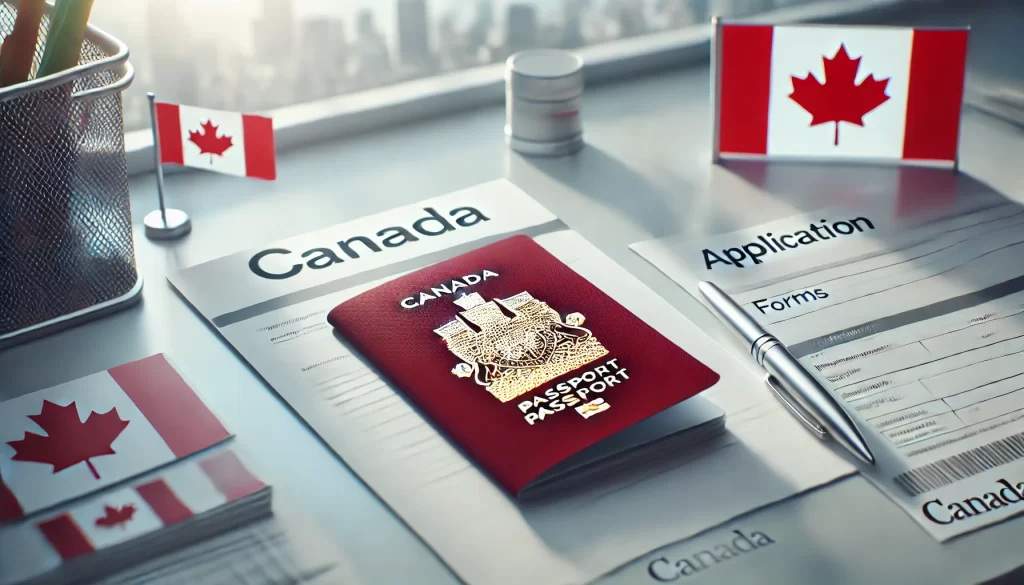
Navigating Expiring Work Permits in Canada: How Long Can I stay in Canada after my work permit expires?
Is your work permit in Canada expiring in the next 6 months? Please don’t wait until it’s too late! At Bibi Law, we’re here to guide you through maintaining your status or transitioning to new opportunities in Canada. Here’s what you need to know and do now.
Why Acting Early Is Critical
Canada’s immigration pathways, like Express Entry, Provincial Nominee Programs (PNPs), and category-based draws, have become more selective. If you’re counting on these routes, preparing alternate strategies is vital. Let us help you explore solutions tailored to your situation.
Immediate Steps to Take
- Check Passport Validity
- Is your passport or that of accompanying family members expiring soon? Renew it immediately to ensure your application timelines aren’t affected.
- Document Validity
- Confirm the validity of essential documents like:
- Language tests (IELTS/TEF/TCF)
- Educational Credential Assessments (ECA)
- Medical exams
- Police clearances
- Confirm the validity of essential documents like:
- French Language Skills
- Do you speak French fluently? You might qualify for the Francophone Mobility Program, opening doors to new work opportunities outside Quebec.
Understanding the Bridging Open Work Permit: Is it Right for You?
The Bridging Open Work Permit (BOWP) allows individuals who have applied for Permanent Residence (PR) to continue working in Canada while awaiting their application’s processing. This article explains how to qualify when to use it, and how it can help avoid work gaps.
What to Do If Your Work Permit Has Expired: Restoration Options Explained
If your work permit has expired, don’t panic! Bibi Law provides crucial information on restoring your status within 90 days of expiry. Learn about the restoration process, eligibility requirements, and complete application submission.

Navigating Employer-Specific Work Permits: What You Need to Know
Employer-specific work permits are a popular option for those seeking to stay in Canada but they come with a detailed application process. We guide you through applying for an employer-specific work permit under the International Mobility Program (IMP) and the Temporary Foreign Worker Program (TFWP), ensuring you have all the necessary documents.
Work Permit Options to Explore
1. Employer-Specific Work Permits
- International Mobility Program (IMP): For employer-specific permits without an LMIA requirement.
- Temporary Foreign Worker Program (TFWP): Requires LMIA approval after extensive recruitment by your employer.
2. Bridging Open Work Permits
- Already applied for Permanent Residency (PR)? If you’ve received an Acknowledgement of Receipt (AOR), you may qualify for a bridging permit to maintain your status.
3. Study Permits
- Returning to school at a Designated Learning Institution (DLI) may allow you to apply for a study permit and maintain temporary resident status.
4. Visitor Status
- Switching to visitor status can buy you time but limits work and study permit options. Consult us before making this move.
key points on how to stay in Canada after your work permit expires:
| Topic | Details |
|---|---|
| Renewing Your Work Permit | Apply for a renewal before your current permit expires to avoid illegal status. |
| Bridging Open Work Permit (BOWP) | Allows continued work while waiting for PR approval. |
| Restoration of Status | Apply within 90 days if you’ve overstayed your work permit. |
| Switching to Visitor Status | If no other options are available, apply for a visitor visa to stay legally. |
| Provincial Nominee Program (PNP) | Explore PNP for permanent residency options if eligible. |
Restoration of Status: Act Fast!
If your work permit has expired, you have 90 days to restore your status. This requires a complete and accurate application along with a restoration fee of $200. Let Bibi Law ensure your restoration process is seamless.
When All Else Fails: Returning Home
If none of the above options work, you might need to temporarily return to your home country. But don’t lose hope—your Canadian work experience and Express Entry Comprehensive Ranking System (CRS) points could still pave the way for future PR applications.
FAQs
1. What should I do if my Canada work permit expires soon?
If your work permit is expiring, you should apply for an extension before it expires. In some cases, you may also be eligible for a Bridging Open Work Permit or other work-related visas that allow you to continue working while your new application is processed.
2. Can I extend my work permit in Canada?
You can extend your work permit if you meet the eligibility requirements. It’s essential to submit your extension application at least 30 days before your current work permit expires to avoid gaps in your status.
3. How do I apply for a Bridging Open Work Permit (BOWP)?
The Bridging Open Work Permit (BOWP) allows applicants who have applied for Permanent Residency (PR) under specific programs to continue working in Canada while their PR application is being processed. You must meet the eligibility criteria and submit your application with the required documents to apply.
4. What happens if my work permit expires and I don’t apply for an extension on time?
If your work permit expires, you can restore your status within 90 days of expiry by applying for restoration of status. However, if more than 90 days have passed since your permit expired, you must leave Canada and apply for a new work permit abroad.
5. How do I restore my status after my work permit expires?
To restore your status, you must submit a complete application for restoration within 90 days of your permit expiring. The application should include all required documents, including proof of compliance with the conditions of your previous license.
6. What is the Provincial Nominee Program (PNP), and how can it help me stay in Canada?
The Provincial Nominee Program (PNP) allows provinces and territories to nominate individuals for permanent residency based on their skills, work experience, and the province’s labor needs. If your work permit expires, you can apply for a PNP to transition to permanent residency in Canada.
7. Can I switch from a work permit to a study permit in Canada?
You can apply to change your status from work to a study permit if you meet the eligibility requirements for studying in Canada. Make sure to apply for the study permit before your work permit expires.
8. Can I apply for a Post-Graduation Work Permit (PGWP) after my studies in Canada?
If you have graduated from a recognized Canadian post-secondary institution, you may be eligible to apply for a Post-Graduation Work Permit (PGWP). The PGWP allows you to work in Canada for up to three years, depending on the length of your program.
9. How do I apply for an employer-specific work permit in Canada?
An employer-specific work permit is granted to foreign workers who have a valid job offer from a Canadian employer. The employer must provide the necessary documents to support your application. There are two main programs for this: the International Mobility Program (IMP) and the Temporary Foreign Worker Program (TFWP).
10. What if I miss the opportunity to apply for Permanent Residency through Express Entry?
If you miss the chance to apply for Permanent Residency through Express Entry, don’t worry! There are alternative immigration pathways, such as applying through a Provincial Nominee Program (PNP) or work permits, depending on your situation.

